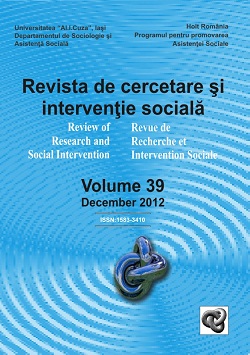The Specific of Professional Education in Social Work Adjusted to Labour Marketplace
The Specific of Professional Education in Social Work Adjusted to Labour Marketplace
Author(s): George NeamţuSubject(s): Social Sciences
Published by: Expert Projects Publishing
Keywords: professional competences; transversal competences; social worker occupation; occupational standards; National Qualifications Framework; European Qualifications Framework; National College of Social Workers.
Summary/Abstract: The domain of the social work occupations is a quite recent one for Romania and this fact leads to a series of difficulties in correlating and harmonizing the university professional education with the labour market. In the context of the European integration, and the globalization of certain regulative social processes, a viable solution to diminish the dysfunctions generated by this non-correlation is the occupational standardization and the curricular homogenization. And so, it appears a series of questions, like: What is the social worker in Romania? Who trains the social workers? Focus more on theoretical knowledge or practical skills? Does the labour market of social work prise the university education? The present study is a departure point in this direction. The present study is elaborated on two parts: first, it analyses the current situation of the professional education of the social work, while taking as a departure point its main out-put - the higher education graduate – and his level of training for the tasks/duties specific to the connected occupations in comparison with labour market expectations. The theoretical supposition (the background of the present research) is that of the correspondence between the higher education training system and the labour market requests – a fact that is always present in all the official documents. The analyses to confirm it usually focuses on the legislation, the role of the National College of the Social Workers as a professional association that regulates the specific occupations’ aspects; but also on two applied researches. The main objectives are approached in the most consistent part that regards the university curricula analyses. On study’s second part that of the practical studies there are presented the conclusions of two large studies of national level developed during 2010.
Journal: Revista de Cercetare şi Intervenţie Socială
- Issue Year: 2012
- Issue No: 39
- Page Range: 39-58
- Page Count: 20
- Language: English

